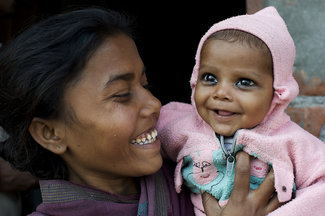

Displaying 131 - 140 of 746
In this best practice article, the challenges faced by these children with disabilities and the potential for inclusion within the CCI are discussed based on the field action project intervention of the Tata Institute of Social Sciences (TISS), Mumbai, with selected government CCIs. The article suggests a multi-pronged intervention approach for the Children with disability (CWD) at the levels of the individual CWD, peer group, CCI and the juvenile justice (JJ) System, which are together recognised as the stakeholders of an ‘inclusive ecosystem’. The article arrives at the ‘Inclusive Ecosystem Model of Rehabilitation’ by drawing from the individual–environment interaction model of disability.
JAIPUR: The help desks for children have been working during pandemic to deal with issues faced by the minors. Jaipur railway child help desk officials claimed that while the number of cases have reduced compared to previous years, they are getting higher number of runaway cases.
That India abandoned 6,459 babies between 2016 and 2020 does not surprise Smriti Gupta, a proud mother to two adopted children. "Likely, the actual number of abandonments is much higher," says Gupta, CEO and co-founder of Where are India's Children (WAIC), a Pune-based non-profit that is trying to create awareness about the invisible deserted and orphaned kids who never make it into India's legal adoption pool chiefly because vulnerable parents and guardians do not know that they can safely surrender the child at adoption agencies instead of leaving them at shelters.
This article looks at the role of the State of India in ensuring the wellbeing of those it has the responsibility to protect. These include people who have suffered violence, indignity, hunger and life-threatening circumstances. The five-year planning of state and district plans have utilised more resources than it has produced outcomes and output. In this article the authors have compiled lessons learned from strategies that can enable duty holders to emerge as more responsible actors during the COVID-19 pandemic.
DHAKA: Bangladesh will overhaul its school curriculum and introduce a new subject covering reproductive health as the country addresses its biggest surge in child marriage in more than two decades, top education officials have said.
For years, specialists have been sounding the alarm about the dangers of collecting and failing to secure data on the world’s most vulnerable.
The Serum Institute of India has said it will provide a Covid 19 vaccine for children as young as three years of age within the next six months.
Four Tamil Nadu kids, sold for Rs 62,000 by parents to a goat herder two years ago, were rescued on Monday.
Now, this data also shows a sharp increase in the number of child pornography cases from 2019, where only 103 cases were registered. In 2018, at the same time, the numbers were only 44
This video case study was developed as a part of the Transitioning Models of Care Assessment Tool training package. It is 1 of 8 video case studies exploring different aspects of learning on transitioning residential care services. To access the full set of case studies or the training package, visit the BCN Transition Hub.

